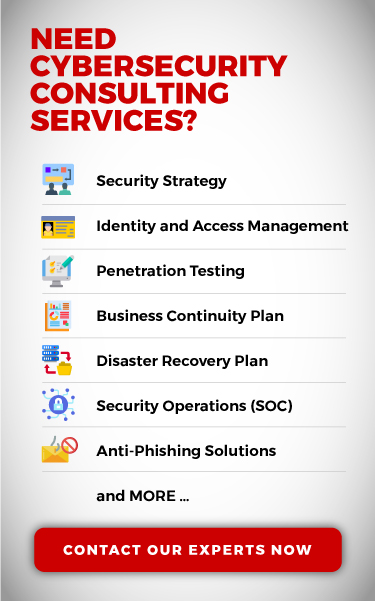Reading Time: 5 minutes
There’s a lot to think about when you start a new business. Between concerns about production methods, information flow, order fulfillment, and marketing, it’s easy for security to get lost in the shuffle. The thing to remember is that cybersecurity is as important, if not more so, than the rest. Think of it like this. If cyber attackers are breaking into your site left and right, you don’t really have a business.
These eight suggestions are indispensable tools to protect what you are building and ensure you a strong shot at success.
- Don’t Rely on a Single Program to Protect the Network
Startups don’t always have a lot of cash, so no one blames them for trying to keep expenses as low as possible. Skimping on security, however, is not a good strategy. In fact, poor security could end up costing quite a bit of money.
Invest in more than one program to protect your network and the devices attached to it.
Non-negotiables would be a security suite with a robust anti-virus program, firewall, and virtual private network (VPN). We’ll talk about those last two later. For now, we’d like to encourage you to find a software suite that checks for malware, ransomware, spyware, plus keeps a sharp eye out for viruses. [1] [2] [3]
- Update Those Security Programs Regularly
Purchasing and installing security programs is only the beginning. They need to be updated on a regular basis. It’s not overkill to do so daily.
Most programs can be set to do this automatically, though that doesn’t mean you can’t manually check for updates any time you like. For example, go ahead and schedule automatic updates for a couple of hours before your employees come in each day. At the same time, implement a procedure for them to manually check for updates during the last hour of their work days. Between the two, your programs will always be ready to utilize the most up to date security releases.
- Remember Up There When We Mentioned a VPN?
Just a few short years ago, VPN services were only for secret agents and tech geeks. But as the daily parade of data breaches, identity theft, new regulations (GDPR we’re talking about you), and government intrusions continues to stroll past, only an extremely injudicious business owner would shrug off considering the idea.
So, what does this wondrous acronym do? Simply put, it creates an encrypted connection to the internet over which the data associated with your business online activity flows. Forward-looking businesses that already have a VPN installed reap the benefits of a slimmer chance that a cyber attacker will be able to 1) even find your data or 2) be able to read it – state of the art encryption protocols present code that would take the best computer on earth a few billion years to crack. [4]
The problem is that advanced encryption tends to slow online browsing, so don’t be afraid to read a cross-section of VPN reviews as part of the process of separating the good from the bad or, in this case, the fast from the slow. [5] Some lower quality services have been known to log user data (that’s bad) and either cough it up to government requests (that’s also bad) or sell it to advertisers (that’s downright ugly).
- Make the Most of Your Web Host’s Security Features
How much do you know about the security protection provided by your web host? Many of the better services provide a number of ways to keep your pages from being corrupted or information collected from visitors being hijacked.
Talk with the web host support staff and see what new security measures they may have added since you first signed up. Many add new features regularly that will make your security measures even stronger.
- Network SegmentationIs Your Friend
There are those who believe that network segmentation is one of the most powerful ways to strengthen a business network. [6] The rationale is that in the event of some type of breach, it’s possible to limit the damage to one segment. Instead of a cyber attacker being able to wander through your network at will, the action is contained. That provides more options for removing the threat even as you protect the integrity of the remaining network segments.
- Never Assume Your BusinessIs Too Small to Target
Do you think that no one would waste time trying to break into your network simply because your business is smaller than the ones we see splashed across the headlines? Think again! Security threats aimed at smaller businesses are common and often lucrative. [7] To some extent, that’s because small business owners think they fly under the radar of cyber attackers and don’t need to beef up their security measures.
The fact is cyber attackers and sometimes governments want to infiltrate and collect data from small businesses. [8] Assume your company is as much of a target as any major corporation. That attitude could prevent you from becoming another bankruptcy statistic.
- Invest in a Next Generation Firewall
How old is the technology behind your deployed firewall? [9] Even if it’s only a few years old, it could already be obsolete. The fact that it’s an effective barrier against older threats does not automatically mean it will protect you from more recent ones.
This is another area that needs constant upgrades. Present generation firewalls offer greater protection and require more sophisticated strategies to breach, especially as artificial intelligence and machine learning technology make their way into the mix. That provides more time for your other safety safeguards to detect the activity and take action to block the threat.
- Review and Refine Your System GuidelinesAtLeast Twice a Year
Technology moves quickly and that includes the development of viruses and other threats. What worked six months ago may not be enough to protect your network today. The only way to be sure is to schedule at least two reviews of your system guidelines annually. [10] Focus on how access is granted, procedures related to remote access, policies about using devices in the office, and anything else that has to do with network security.
The Bottom Line
It’s up to you to determine how to protect your network. Talk with a professional and develop a comprehensive approach. Remember that assessing the network setup and usage regularly will make it easier to know when upgrades are needed. While all this might seem like a lot of fuss and bother, the effort will pay off every time threat is detected and blocked and your business lives to operate another day without malware or virus interference. By the way, there’s a good chance your website is already under attack about 22 times per day.
About the Author

Sam Bocetta is a freelance journalist specializing in U.S. diplomacy and national security, with an emphasis on technology trends in cyber warfare, cyber defense, and cryptography.
Disclaimer: The opinions expressed in this guest author article are solely those of the contributor, and do not necessarily reflect those of EC-Council.




